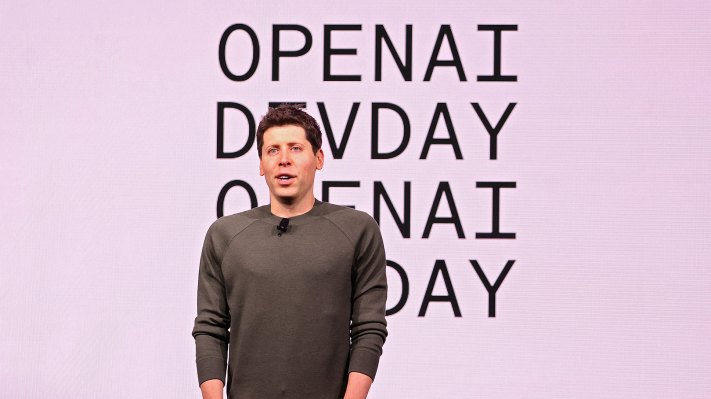One way to think about the OpenAI shakeup of the last few days is that a nonprofit board with a specific mission felt like one of the company’s leaders was not working toward those goals. So they canned him.
The Exchange explores startups, markets and money.
Read it every morning on TechCrunch+ or get The Exchange newsletter every Saturday.
Another way to think about it is that a bunch of yahoos who had no idea what they were doing executed a power play against the real engine of value at their company, and were canned in response.
 These perspectives are not mutually exclusive.
These perspectives are not mutually exclusive.
But when we weigh these viewpoints against each other, one clearly tips the scales.
On one hand, the board of a nonprofit organization was trying to do what it felt was right. On the other hand, there was a mountain of capital invested in a company that had zero interest in seeing its paper markups go to zero.
And Microsoft was also in the mix. The software giant already owned as much of OpenAI as it could without things getting sticky and probably wanted the old status quo to return, given how well that investment had played out for its business thus far.
So, there were some nonprofit folks up against a wall of money and influence. Guess who won?
Not the nonprofit board.
Altman is back, and the board of the company is now made up of the sriracha of the tech world (i.e., it works with anything you add it to): Bret Taylor; Larry Summers, the economist responsible in part for deregulating the American banking industry; and Adam D’Angelo, who runs Quora. So we have two Silicon Valley types and an economist who I doubt many expect to slow down anything OpenAI wants to build.
It’s Altman’s show now, and that is probably for the best. I say that as someone who is very far from being an AI doomer or even a decel. I do wonder if there are any material checks and balances now at OpenAI when it comes to safety, but swapping one extreme for another is something that us humans are good at, so we should not be surprised how we got here.
I find it irksome that in my early analysis of the situation, I underestimated the combined power of a multi-trillion-dollar company, billions of invested capital and ample outrage. But I relearned quickly that as with everywhere else, when there is a difference of opinion in the business world, expect the more powerful side to win.
In the future, I hope to be more cynical, as that will serve everyone well.
Onward into the American holiday that will occupy the rest of the week. I reckon that things will be back to normal by Monday, and OpenAI will look even less like what it started out as, and more like the thing that will make a lot of folks the most money.
